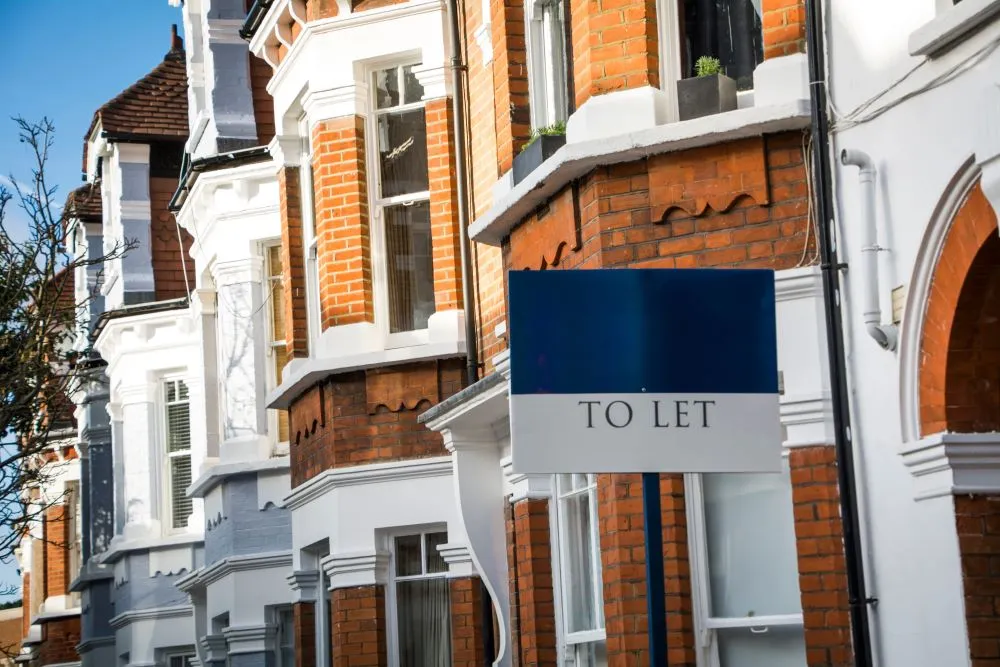Will renting get easier in 2024?

If you’re reading this, it’s likely that you are either currently renting, or have rented a property in your lifetime. The private rental sector is now the second biggest portion of housing in England, behind owner occupiers, and accounts for around a fifth of all households. For many, renting a property is their way of providing a safe and secure home for themselves and their family. For others, it’s a natural progression from living with their parents to moving out, with hopes of one day owning a place of their own.
But these once simple goals are growing more and more unattainable. Tenants are facing record prices, with rental prices growing at the fastest annual rate for more than a decade. This means that renters are paying out a higher proportion of their income on housing costs (around a third), 10% more than what’s paid by those living in the home they own.
With increased costs across the board (food, fuel, insurance, energy), the price of renting is a heavy weight to bear. Renters are almost five times more likely to experience financial hardship than people who own their home outright, data from the ONS shows.
So, what’s driven prices to this point? And crucially, will housing costs get any easier in 2024 for tenants?
Why are rental prices rising?
Essentially, the issues boil down to a major imbalance between supply and demand for housing. Rightmove’s rental tracker showed that for 15 consecutive quarters now, monthly rent has continued to hit a record high, as of summer 2023. Average rent outside of London is now £1,278 a month, 10% higher than the year before. And in the capital, rents are up 12%, at a whopping £2,627 a month on average. Zoopla reports an 11% rise in demand, driving this massive price hikes.
There’s a shortage of affordable housing. An estimated 340,000 homes should be supplied to England each year to keep up with demand, with 145,000 being affordable – this means at least 20% below local market rents. Successive governments have failed to build enough homes, while social housing stock has been sold to the private sector through Right to Buy, or simply demolished and not replaced. In its 2019 manifesto, the Conservative government targeted 300,000 new homes in England. But in 2021/22, just 232,000 new homes have been supplied, and they’re yet to hit the target.
The pandemic was a crucial period for the rental market, accelerating shifts that were only just starting to emerge in 2019. But, with lockdown after lockdown, many renters, frustrated by the confines of city living, moved their focus towards suburban areas. Here they could get more space for their money, enjoy a garden, and access the outdoors more easily.
Meanwhile tourism hotspots such as Cornwall have had a surge in short-term lets with Airbnb and similar sites, adding to the pressure pot. Factor in the major mortgage shock of 2022-23, during which the Bank of England base rate hat shot up to 5.25% and landlords who were liable for the mortgage on rental properties were also under financial pressure to keep up.
No matter if you live in London, another major city or even a more rural location, nowhere is immune to rental price hikes. So, is it better to stay put or move for a better deal? More tenants were enquiring about a move in April 2023 than the year before (4%), and the current search for a new rental is 48% higher than before the pandemic, in 2019.
Unfortunately, the Office for National Statistics has also recorded steep increases to rents mid-tenancy. Tough competition and high demand mean that many landlords have kept pace by putting up rents for existing tenants. These tenants will either pay the higher rates, or be forced to look elsewhere, leaving landlords to find a new tenant who will pay these increased rates.
Will rental rates ever get better?
Looking back at how much rent – alongside everything else – has gone up by, it’s hard not to feel despondent. After all, on average, wages have not kept up with inflation and the cost of living, and we’re paying increasingly bigger portions of our income on housing. What’s being done to help solve the problem?
Rental costs were due to increase by 11.1% in 2023-24, but the government stepped in to cap it at 7%. We’re yet to find out whether the government will cap rent for social housing tenants, or whether these tenants will pay 7.7% higher rents in 2024-25.
But, there are some glimmers of hope. Rightmove reported than demand eased by 17% compared to 2022, while supply is up by 14%, meaning there are more rental properties available, with less competition. What’s more, there are more new rental properties coming to the market than this time last year.
Last year also brought with it a series of renting reforms. No-fault evictions are due to be banned, with tenants given more power to challenge landlords that fail to meet their obligations. What’s more, the reforms – which are currently going through the process of becoming law – also include a blanket ban on refusal to rent to families with children, or those receiving benefits, as well as restricting rent increases to once a year. Tenants will have the ability to challenge a rent increase through the First Tier Tribunal if they believe it’s above market rate.
Howden – we’re here to help!
Renting often brings with it a sense of uncertainty. But if there’s one thing you can be sure of, it’s that your friendly local team of insurance experts are here to help. Whether you need contents insurance for your current tenancy, or want to explore options for your other policies, you can call on us. Simply contact your local team via the phone or pop in to branch.
Sources: Big Issue, BBC, Zoopla, Rightmove, Which?, GOV.UK



